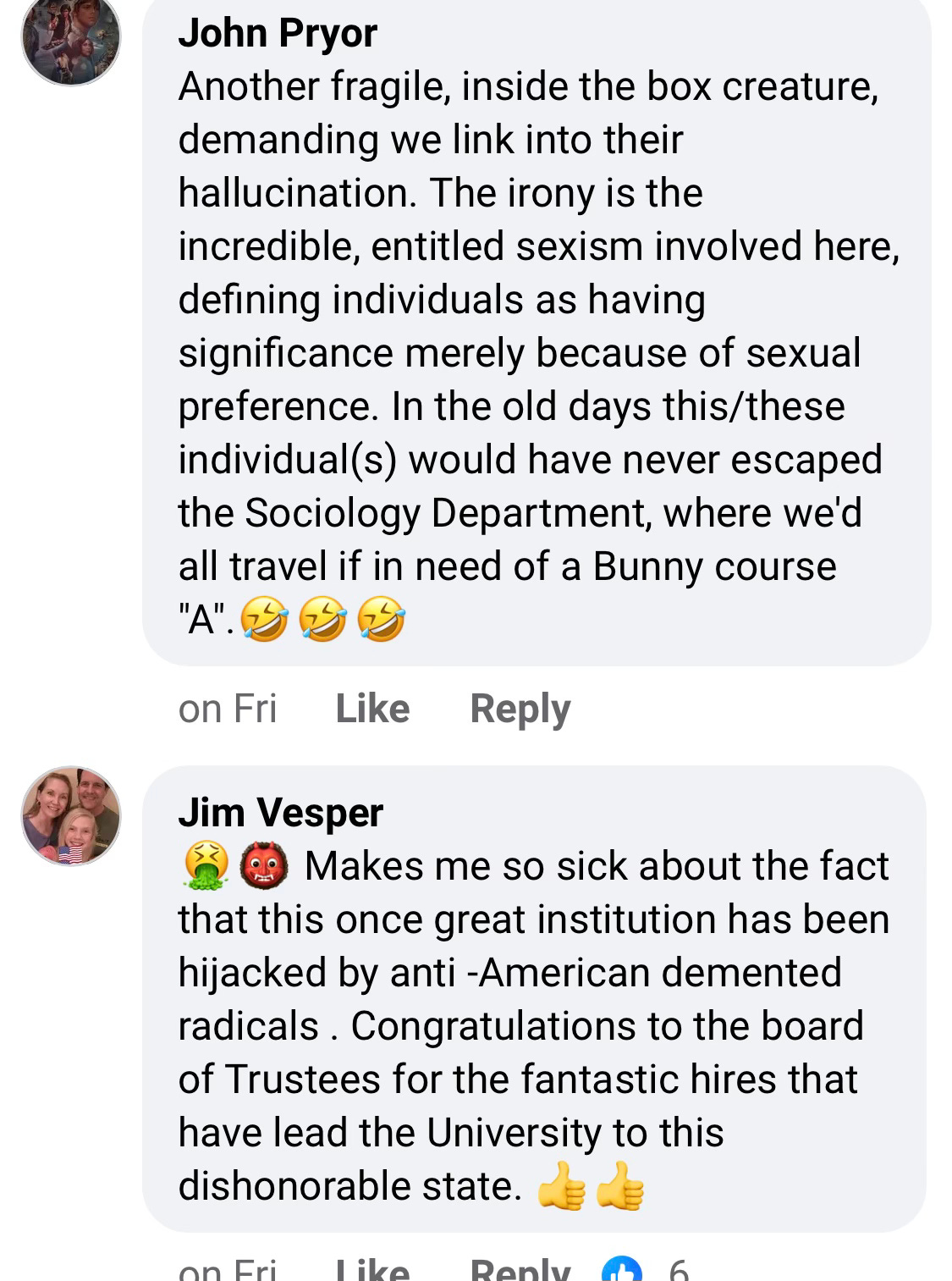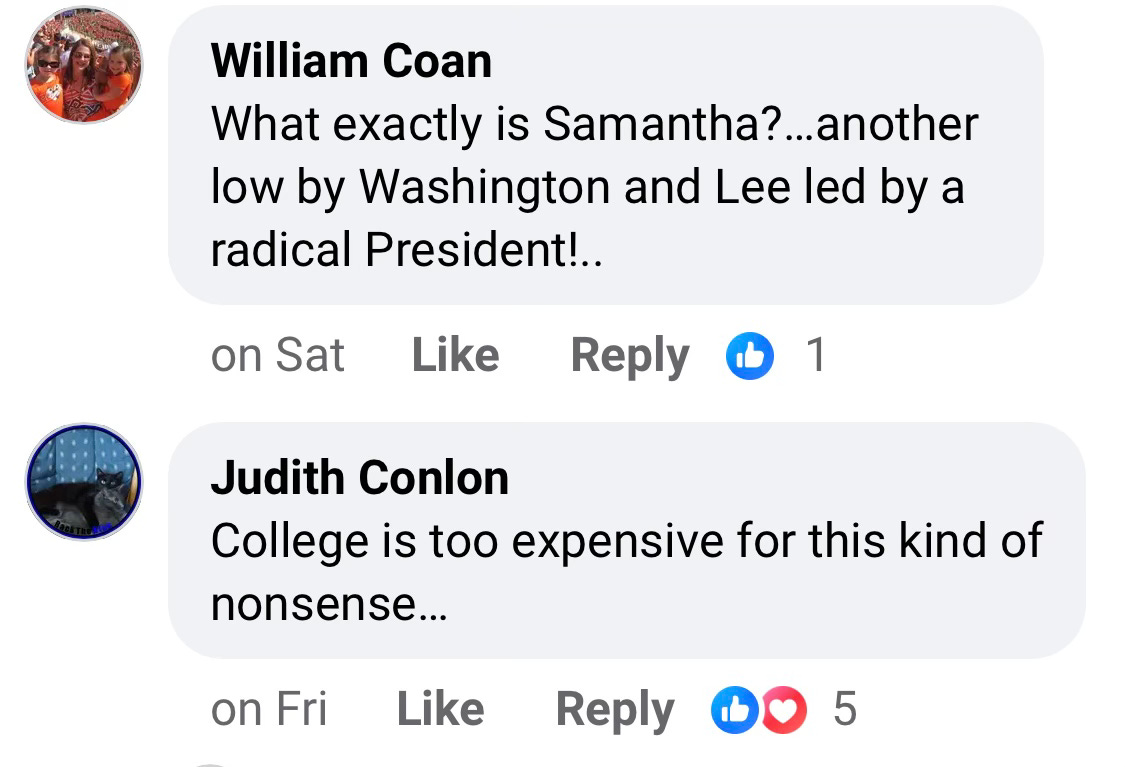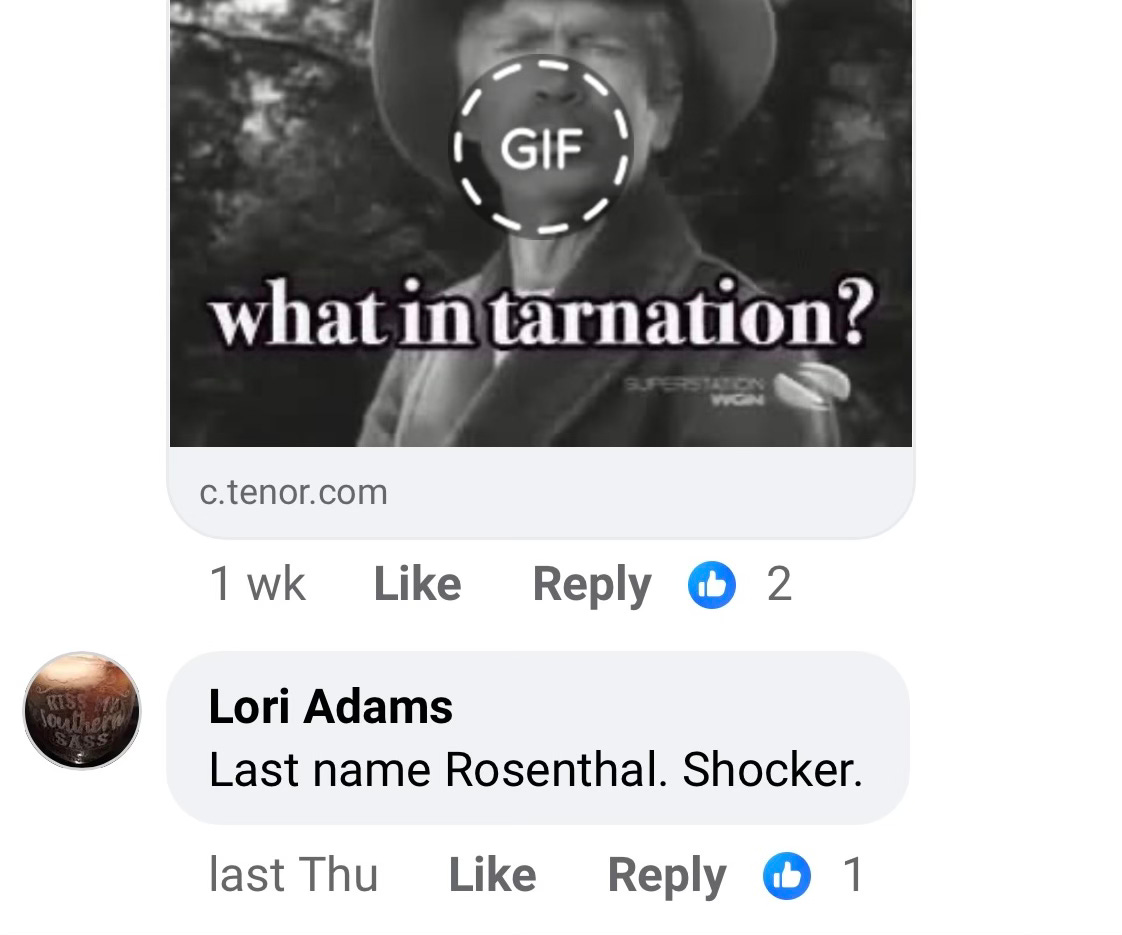I was Hired as an Expert in Transgender History—Then Fired for it
My year at Washington & Lee University
This will be one of those posts where I readily abide by my own 700-word limit, as in this case saying less is more. That’s because earlier this week I filed an official complaint with the Virginia Office of Civil Rights alleging violations of the Virginia Human Rights Act by my former employer, Washington & Lee University.
Back in 2020, our Governor signed into law the Virginia Values Act, which extended discrimination protections to LGBTQ Virginians, including protections against housing discrimination and employment discrimination based on sexual orientation and/or gender identity. For the first time since moving to Virginia in 2015 as an out queer person, I was now protected against employment discrimination as a transgender person. (Note that in 2020 the U.S. Supreme Court decision in Bostock v. Clayton County also further extended protection against employment discrimination to LGBTQ American across all fifty states. So in Virginia, LGBTQ workers are doubly protected against employment discrimination both on the state and federal levels.)
As a nationally-recognized scholar of U.S. LGBTQ history, and the author of a book and numerous essays on Virginia’s LGBTQ history, I am well aware of the significance of the Virginia Values Act. But only recently did I come to see its significance to my own life as a transgender worker.
In 2024, I was hired by Washington & Lee University on a two-year contract. I was hired specifically due to my expertise in U.S. LGBTQ history, with the expectation that I would teach courses broadly in U.S. LGBTQ history, including a course on transgender history.
Unfortunately, anti-transgender forces in the Washington & Lee community (particularly powerful alumni) began targeting me even before I stepped into the classroom on my first day of class in August 2024. And then they never let up. Following Donald Trump’s election victory in November, the online harassment only grew worse. There were more anti-transgender (and antisemitic) comments posted about me than I’ve ever experienced at any other time in my career. Physical hate mail was sent to my work address. Alumni rallied to get me fired from their alma mater because, in their estimation, a transgender professor simply did not belong at their beloved school.
And then, three days before Trump’s inauguration, I was pulled into a meeting with a university administrator who informed me that even more anti-transgender animus was occurring behind the scenes than I knew. A “big donor” to the university, she said, was leading a campaign to get me fired. Alumni were calling the university president threatening “to no longer donate to the university” because of me. The university president was getting emails about me, and “there are those [in the administration] who would like to no longer be answering those emails,” she said. An administrator admitted that there was “pressure coming from within the university to ‘solve’ the Samantha problem.” And here is how it would be solved. It would be explained in “exactly the logical way,” I was told: that is, that college-wide enrollment struggles necessitated terminating my contract (even though other visiting professors on similar two-year contracts would not be terminated).
I have filed an official complaint with the Virginia Office of Civil Rights because, to be crystal clear, the Virginia Values Act prohibits employers from firing someone because they are transgender—even if a horde of angry alumni and high-profile donors want that person to be gone.
When people motivated by anti-transgender animus campaign to get someone fired from a private institution, it is that institution’s legal obligation to continue to comply with all relevant state and federal laws in the face of external (and internal) pressures. In breaking my contract, pushing me out of the classroom, and sweeping me under the rug, Washington and Lee tried to solve the Samantha problem. What they did was illegal.











I am.....speechless. Sending strength to you.
Sending solidarity, sympathy, and fortitude. So sorry you've had to deal with this.